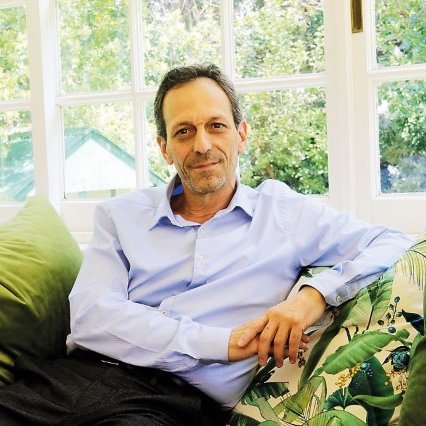click to dowload our latest edition
CLICK HERE TO SUBSCRIBE TO OUR NEWSLETTER


Published
5 years agoon
By
adminLUKE ALFRED
Sidenberg, a Toronto-born Canadian who has lived in South Africa for 25 years, isn’t everywhere, but examine the fine print of a ground-breaking broadcast deal, say, between the South African Football Association and the SABC, and he’s likely to have offered his considered view at some point.
Currently, Sidenberg is consulting to pretty much everyone in the sports industry, whether they be corporate sponsors, broadcasters, or any number of sporting federations.
Of particular concern is the new Independent Communications Authority of South Africa (ICASA) draft paper that seems to be designed to break what it perceives to be SuperSport’s monopoly on buying up sexy international rights.
Sidenberg doesn’t see ICASA’s attempt to clip SuperSport’s wings as innately problematic. However, he adds the caveat that had ICASA thought through its position – and had its draft paper been better conceptualised – it might have succeeded in calming the industry rather than launching it into a frenzy of uncertainty.
Other than creating unease, what is at stake? The brute reality of the current situation is that South African sporting federations’ only inventory is their broadcast rights. Unlike federations elsewhere in the world, they don’t turn much of a buck from merchandising, licensing or season-ticket holders, and sponsorship revenues are already being forced to punch above their weight.
Showing more sport than would have been shown on SuperSport on free-to-air platforms such as the SABC is all very well, but they can’t pay for it. This, in turn, means that federations are essentially giving away their broadcast rights for free, as Cricket South Africa did with the inaugural Mzansi Super League last November.
No money from broadcast rights means no money in federations’ coffers for programmes. And no programmes – and therefore no development – means the slow poison of sporting death, particularly for those who can’t afford to play their sport in the sanctuary of well-provisioned clubs and private schools.
“What with the [ICASA] proposals slated for debate at public hearings only next month, it has served to overshadow the perhaps more pressing issue of media disruption. Either way, it’s likely to be the most fearful and exciting time in sports broadcasting ever,” says Sidenberg.
He came to the mixed joys of contemporary South Africa via a circuitous route. One of four children, he has three sisters: one older, two younger. Back home, his dad was a lawyer, his mother a bookkeeper. “She worked for the Toronto branch of the Pamensky family,” says Sidenberg. “They produced industrial motors for the Canadian mines.”
After attending the University of Western Ontario between 1982 and 1986, he learned the art of selling furniture before dabbling in the local stock exchange. With the industry in a state of flux, and with the young Sidenberg having perhaps more money than he should have, he was gripped by a bad case of wanderlust. For 26 months he travelled the world.
During the first year he “hung out with a bunch of crazy Australians”, threading his way from Europe to Nepal, Thailand to Bali, and most of Australia. En route home he met up with a good friend who had other ideas – and the travel bug kicked in again. To tame the craving, he undertook a 10-month-long overland road trip across Africa.
“We were in a German truck with 18 lower gears,” he chuckles. “We witnessed three civil wars, two elections and killings in the street.”
Within months, Sidenberg was at passport control separating Zimbabwe and South Africa, heading south. The Afrikaans-speaking customs officials assumed he was a farmer bringing workers across the border, but the Zimbabweans he was with were traders, venturing to markets in Johannesburg, where they hoped to sell every layer of the many clothes they were wearing bar one.
A few hours later he was at the Rotunda near Park Station, being whisked away to the luxury of Westcliff in a Jaguar driven by family friends. “You guys had toilet seats – so I stayed,” said Sidenberg. “Three or four days after I arrived, Christ Hani was assassinated. If I had a return ticket, I don’t think I’d still be here.”
Once he’d decided to say, Sidenberg’s financial background came in handy, with the added attraction that he had an accent most South Africans mistook for an American one. In no particular order, he worked at Liberty, World of Golf, and Selwyn Nathan’s SAIL, before heading into the world of market research, particularly in the sports industry.
He’s now chief executive at BMI Sports Marketing, a market leader in sports research in the country. He acknowledges that the times are fluid and confusing, but frankly, he likes South Africans’ propensity to fly by the seat of their pants.
Coming from trusty Canada, where jumping a red light makes front-page news, he wouldn’t have it any other way.
